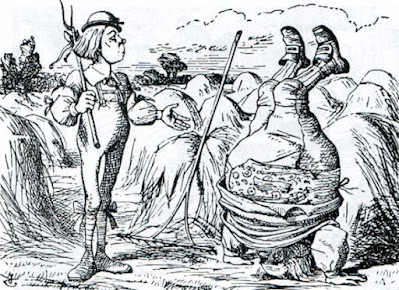TE PATI MĀORI’S ELECTION SLOGAN is “Aotearoa Hou”, which, roughly translated, means “A New Day”. NZ First’s slogan is “Let’s take back our country”. This, in essence, is what the 2023 General Election will be about.
Are New Zealanders still capable of imagining a brighter future, or are they, indeed, desperate for a return to the better country they remember. Most of the other party slogans are variations on these themes. National wants to get New Zealand “back on track”, for the Greens “the time is now”, while Act is promising “real change”.
Labour’s slogan, “In it for YOU”, stands out by being determinedly agnostic about New Zealand’s future direction of travel. All the voters are being asked to do is place their trust in a clutch of politicians who are in the game solely for their benefit. (By which, presumably, they mean the voters’ benefit, not their own!)
A number of political scientists have pointed out the lack of ambition in Labour’s slogan. Traditionally, the Party has focused voters’ attention on the need for change. It has also favoured collective over personal pronouns – as it the upbeat slogan of 2017, “Let’s do this!”
Rather than linking Labour and the people in a combined effort for national improvement, the “In it for YOU” slogan conjures-up the image of a gaggle of well-meaning do-gooders (many on salaries of nearly a quarter-of-a-million dollars) desperately anxious for YOU to believe THEY are without sinister, ulterior or selfish motivation. Labour: A party of altruists, pure as the driven snow, and they’re doing it all for YOU, baby!
It’s a dismal admission of failure, but one which has been implicit in the Labour Party that emerged from the splits and divisions of the Rogernomics era. When Labour was a party of 100,000 paid-up members and financial supporters, “we” had real political heft. To be a member of the Labour Party was to be a member of an organisation that that had transformed New Zealand’s economy, society and culture.
By 1990, however, Labour had been reduced to an organisation of fewer than 10,000 members. Most of these looked upon the party as a sort of social club in which, if they were lucky, they might have their photo taken with the prime minister. These folk actually hated political debate – it only led to unpleasantness. When the minority of political careerists who actually ran the party called upon these stalwarts to guard Labour from dissidents and traitors they were only too happy to oblige.
The present Labour Government constitutes a grim demonstration of what happens to a political party that no longer possesses the transformational impulse that animated its predecessors. (Even the Fourth Labour Government, albeit from the wrong end of the telescope!)
Having been handed the reins of government by Winston Peters in 2017, the party that Helen Clark and Michael Cullen had carried for nine years, almost entirely on the strength of their own prodigious political competence, took less than five years to demonstrate a heartbreaking degree of political ineptitude. Not even an unprecedented (under MMP) parliamentary majority, delivered in recognition of Labour’s initial success in handling the Covid-19 crisis, could help it get whatever “this” was, done.
If this Labour Government really is in the business of government for us, then we can be forgiven for wondering just how much worse-off we might be if they were actually in it for somebody else!
That the National Party can think of no more inspiring slogan than to get the country “back on track”, is evidence of how far it, too, has fallen since the days when John Key (state house boy made good) promised New Zealanders a “brighter future”. National’s current metaphor portrays New Zealand as a train derailed, and itself as the maintenance gang with both the engineering expertise and the heavy-lifting machinery needed to get things moving again.
All of which would make perfect sense if New Zealanders were confronting a more conventional economic and social crisis – one screaming out for remedial action. But, is that the mood? Or is it, rather, that instead of a derailment, New Zealanders are gripped by the conviction that the train they are on has been surreptitiously re-directed towards a destination they were not told about, and would not have chosen if they had been.
The problem with National’s slogan is that it offers the voters no possibility of travelling in a new or different direction. The best they can hope for is that National will convey them in the same direction as Labour, only with a little more attention to their health and safety. The party might just as well have inscribed “National – we’ll get you there in one piece” on their billboards.
Act’s invocation of “real change” – especially in the context of presenting itself as National’s hard line/hard core coalition partner – merely confirms to voters that David Seymour intends to get them to the Right’s neoliberal destination at top speed, ignoring the safety regulations, and without making any further stops.
Having arrived at the terminus, however, it will soon become clear to the travelling public that National and Act have not taken them anywhere they haven’t been before. That Act’s “real change” is really just (big) business as usual – and, maybe, something even worse.
Deconstructing NZ First’s slogan presents a much more intriguing proposition. “Let’s take back our country” invites the voters to participate in a daring act of political intervention. Rather than sit back passively as the ship-of-state sails on into a worsening storm, Winston Peters is inviting the voters to turn him into their Fletcher Christian. With them at his back, he will storm the bridge and take back control from the neoliberal Captain Blighs who stole the good ship “New Zealand” from them forty years ago, and under whose command it has become less-and-less seaworthy. “Let’s take back our country” is nothing less than an invitation to electoral mutiny.
It is only Te Pāti Māori, however, which is offering the electorate the prospect of something entirely new. Only the Māori Party which is willing to take the necessary next steps beyond the Greens’ plaintive warning that “the time is now”.
As Te Pāti Māori has demonstrated with its radical tax policies, the intention is to strike at the very heart of the neoliberal status quo. Tinkering, argues Deborah Ngarewa Packer and Rawiri Waititi, is no longer enough, the system under which 2.1 million New Zealanders earn less than $30,000 per year, must be brought down. It’s a metaphor as old as politics itself. Out of darkness a new day must dawn. New Zealand must be re-made. “Aotearoa Hou.”
This essay was originally posted on the Interest.co.nz website on Monday, 31 July 2023.









.JPG)

